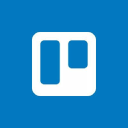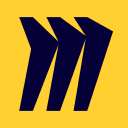How Two Agencies Joined Forces To Launch An Unlimited Design Subscription
Note: This business is no longer running. It was started in 2022 and ended in 2024. Reason for closure: Shut down.
Hello! Who are you and what business did you start?
Hi guys! I’m Shubham Dhawan and I started this company - Anytime Design with my business partner Mitya Smusin.
Anytime is our unlimited design subscription for apps and websites that we started around 4 months back. We’ve been working with young startups on their UI / UX design requirements. Companies subscribe to Anytime and then request as many design tasks as they like. Our team works on them one by one based on the priority order set by the client.
Our main customers are companies that have just raised their first round or are bootstrapping and have reached 10-12 full-time employees. These companies realize the value of good design, but at the same time, cannot afford an elaborate design team comprising UX, UI designers, animators, illustrators, and the rest.
We’ve onboarded our first few clients on a trial basis and have our MRR of $2,500.
Coming to our background, both Mitya and I come from the agency world. Mitya runs Yellow Systems - a software development company with 75+ employees spread across the globe. And I run Coloristy Media - my design studio based out of Bangalore in India.
We’ve both...





















